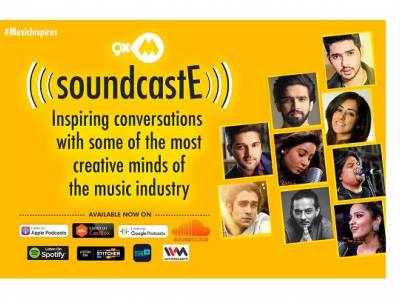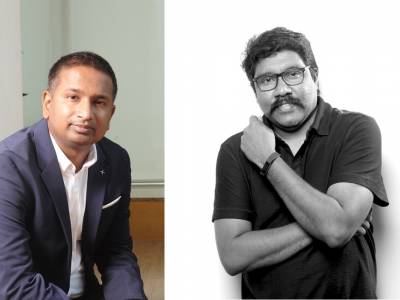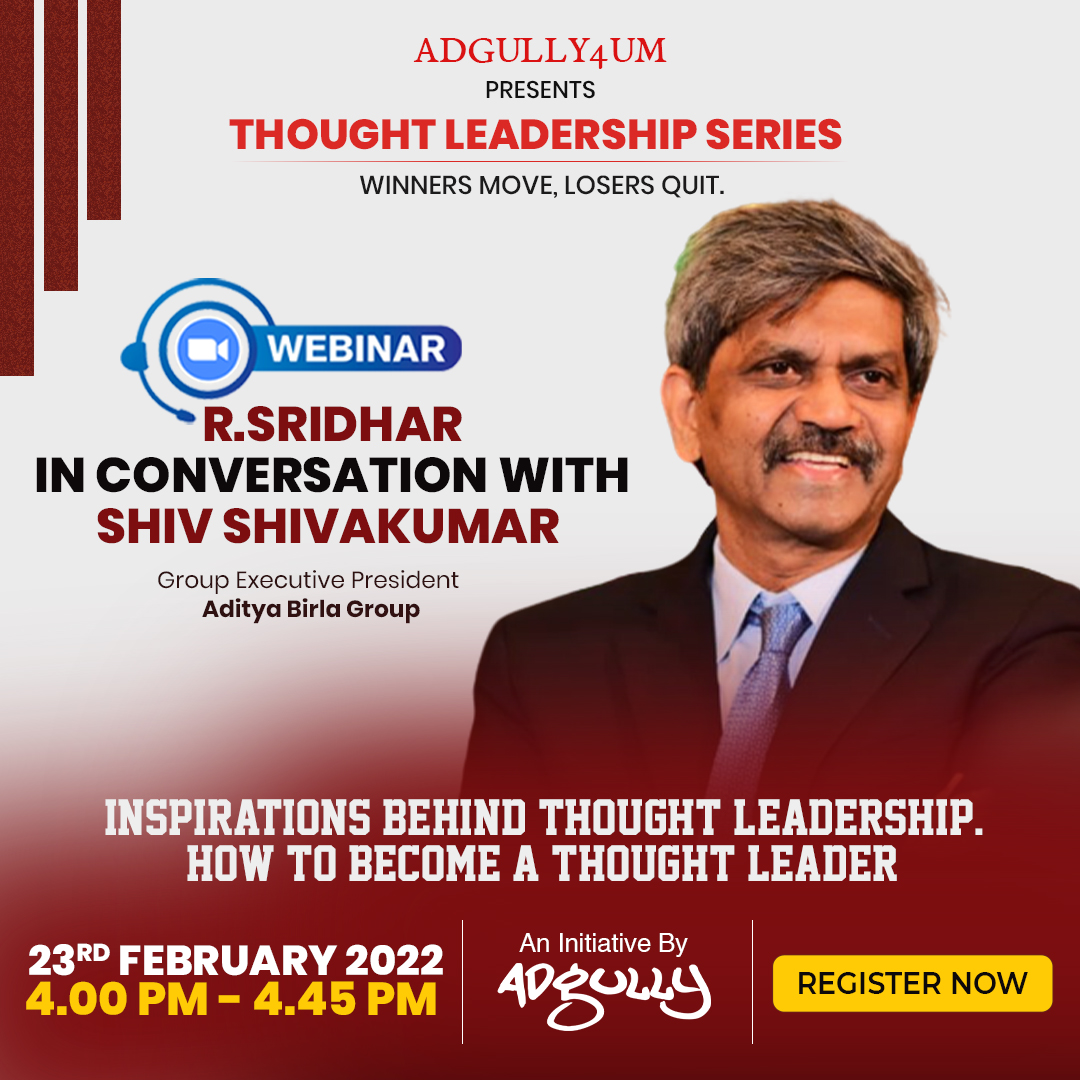Indepth: Podcasting in India Pt 1: Massive potential, but under-leveraged
In May this year, Moneycontrol became the country’s first financial digital platform to enter the podcasting space. This expansion has further augmented Moneycontrol’s multimedia positioning as it now serves content in text, video on demand, live streaming and photo-story formats, besides audio.
Commenting on the potential that Moneycontrol wants to tap here, Business Head Gautam Shelar, explained that as Moneycontrol has a lot of users who are mature investors, they require in-depth analysis of the markets, business, and economy that they can listen to in leisure. “Podcast is a medium that can be useful for that purpose. We have seen podcasts on other digital platforms and decided to do that on our own moneycontrol.com platform as well. Broadly, we are targeting our mature industry professionals. The next step is obviously what is the investor looking at? We are looking at stock tips, we are looking to bring market experts on our podcasts who will give advice on which category and industry to look for. All this is welcome information that an investor will look for.”
Nascent, but massive potential
Digital experts are united in their views regarding the massive potential of podcasting in India. As Shekhar Mhaskar, EVP, Isobar, underscored, “The potential is really massive. It is in a very nascent stage, where listeners are slowly moving to podcasts, away from music. There are enough and more radio stations and online channels that offer music of all genres. Podcasts could offer a homogenous mix of entertainment in the form of comedy, perhaps, and content that is informative. In the next 3-4 years, I presume the growth will be exponential. Podcasts and music will be neck and neck.”
This optimism is shared by Anusha Subramanian, a media observer who is also contemplating to start her own podcast. She observed, “Despite the fact that we have a large Radio culture in India, India is still not used to talk radio. Podcasts, thus, are at a nascent stage as of now, but have a huge scope. As its always said, content is king, podcasting is set to become a new way of communication. Podcasting has opened limitless possibilities of providing content to phone and internet users. Podcasts can be done by anyone with a good idea and topics can range from sports to politics to business to history to pop culture to fashion and the list is endless. There is huge scope for regional podcasts given that India has so many languages and through podcasts one can reach out to a vast listener base across the country. These are also easy to download on your phone and listen to. A prime example of a leading podcast in India is PM Modi’s ‘Mann ki Baat’.” She stressed that podcasting has full potential to go mainstream, it is just a matter of time.
Content & Listening Culture
And who better to comment on the business potential of podcasting than Amit Doshi, Founder/CEO, Indus Vox Media, a digital media production company that works in audio with an emphasis on podcasts. Doshi noted, “In the long term, this will be a massive business. If you look at radio markets worldwide, there is consistently a 70:30 split between music channels and talk channels, where 30 per cent is listening to talk and 70 per cent is listening to music. In India, we don’t have a significant supply of talk content, and hence it is unlikely that you will see a large audience consume that content. As players like us and other individuals get into this space and start giving out more and more content, over a period of time people will say – Hey you know what, I can do that on my commute, I can do that on my workout, I can do that when I’m doing my household chores, cooking, whatever. These are the kinds of people looking to consume audio and the availability of content is probably the first thing needed for the business to grow. I don’t think Indian people are very different from people in any other country. If 30 per cent of the population everywhere is listening to talk content, why can’t it be the same in India? It absolutely has the potential to become a big business.”
Podcasting requires a strong listening culture in order to thrive. While in countries like the US or the UK people have been listening to talk content for over half a century, it will take a while to build that culture in India. Doshi shared, “There has been a lot of organic growth and our numbers are at about 12 times higher. We have seen 12x traffic growth in the last 16 months. Just from a traffic perspective, things are a lot higher and the number of people listening to us are increasing every day. If we are able to maintain this kind of growth for the next two or three years, the listening culture will have arrived at that point. Some podcast shows do better than other shows do, but there is consistent growth across the entire business.”
Subramanian, too, stresses on good content as a prerequisite for growth of podcasting.
Relevant content is helping Moneycontrol’s podcasts gain greater traction. As Shelar informed, “As our content will mostly deal with finance, business, economy genres, sometimes we could look at the state of the economy, RBI policies, it could even be management talk and things like that. We don’t do much of politics other than when the elections are going on and it may affect the market, but will we stay away from purely politics.”
Today, Moneycontrol has 5 podcast releases a day that are being released by different teams. This is the third month since the company began releasing podcasts. In the beginning, it started with 2 a day and over a period of time it went up to 5 per day. “For this year the aim is to do 5 per day and see how we do. The listenership is a growing number, we started out with a few hundred and now we are seeing a couple of thousand. The last count, we saw more than 30,000 listeners per week cumulatively is what we are seeing,” he added.
According to Isobar’s Mhaskar, narrative storytelling, comedy, current affairs in a lighter vein, etc., are a few of the genres that are ticking with the listeners. “I think the content providers are going with their gut when they are creating content basis their experience of content affinity of audiences on other channels. To develop and enrich podcasts even more, we need to actually solicit interests from the listeners.”
While highlighting the ways to build a strong listening culture, Amit Doshi has a few key observations. According to him, the word listening culture has no real definition to it. It is more of a thought about how we want people to interact with our content. Basically, to build a listening culture the number one thing required, which is also the number one deficit, is that there has to be adequate supply of content. He noted that currently, there is simply not enough good talk content out there for people to listen to. “That is the main thing we are trying to do here. We are trying to put out as much content as we can about stuff that works well and we are trying to build our culture through that,” he added.
Doshi further said that for radio stations there is an issue when it comes to what kind of content they can put on the air. There can be no news or current affairs content, which limits the amount of stuff they can do. “When it comes to the online digital space, there is a certain amount of growth that we are seeing. Saavn is putting out new stuff fairly regularly, BookMyShow just entered this space. I would not be surprised to see Gaana come in fairly soon at this point in terms of content as well. There is definitely an addition of content that was not there previously on the digital front and you are definitely seeing a lot of talk content happening,” Doshi added.
Factors holding back growth of podcasting
While speaking on why podcasting in India has not been able to explore its full potential, Mhaskar of Isobar opined that we as an audience have culturally been brought up in an ecosystem of music, Bollywood, and also very importantly, cricket. Anything around these topics gets lapped up instantaneously without needing a push. “I think it is now changing due to the increased exposure of the digital natives – the millennials, to international podcasts. It is because of them that there is a demand, and hence we see a few good Indian podcast channels by well-established personalities from theatre, Bollywood, stand-up comedians, etc.,” he added.
Moneycontrol’s Shelar too believed that currently podcasts in India are a rather under-leveraged platform as compared to the West. He felt this was due to podcasters not being able to hit upon the right combination of content and speakers. He noted, “I think a lot of Indians listen to foreign podcasts, but there aren’t too many Indian podcasts available. But if you have the right product in the right market, then I think there is a play over here that we have to get right.”
Subramanian, too, agreed that the Indian audience is more used to listening to music than to talk content. “We have many bloggers, but few have taken to doing podcasts. Also, I feel many think that doing a podcast requires some hi-tech technology, which is not true.”
Tomorrow – Part 2:
Tapping the monetisation opportunities for podcasting and future growth prospects

























Share
Facebook
YouTube
Tweet
Twitter
LinkedIn